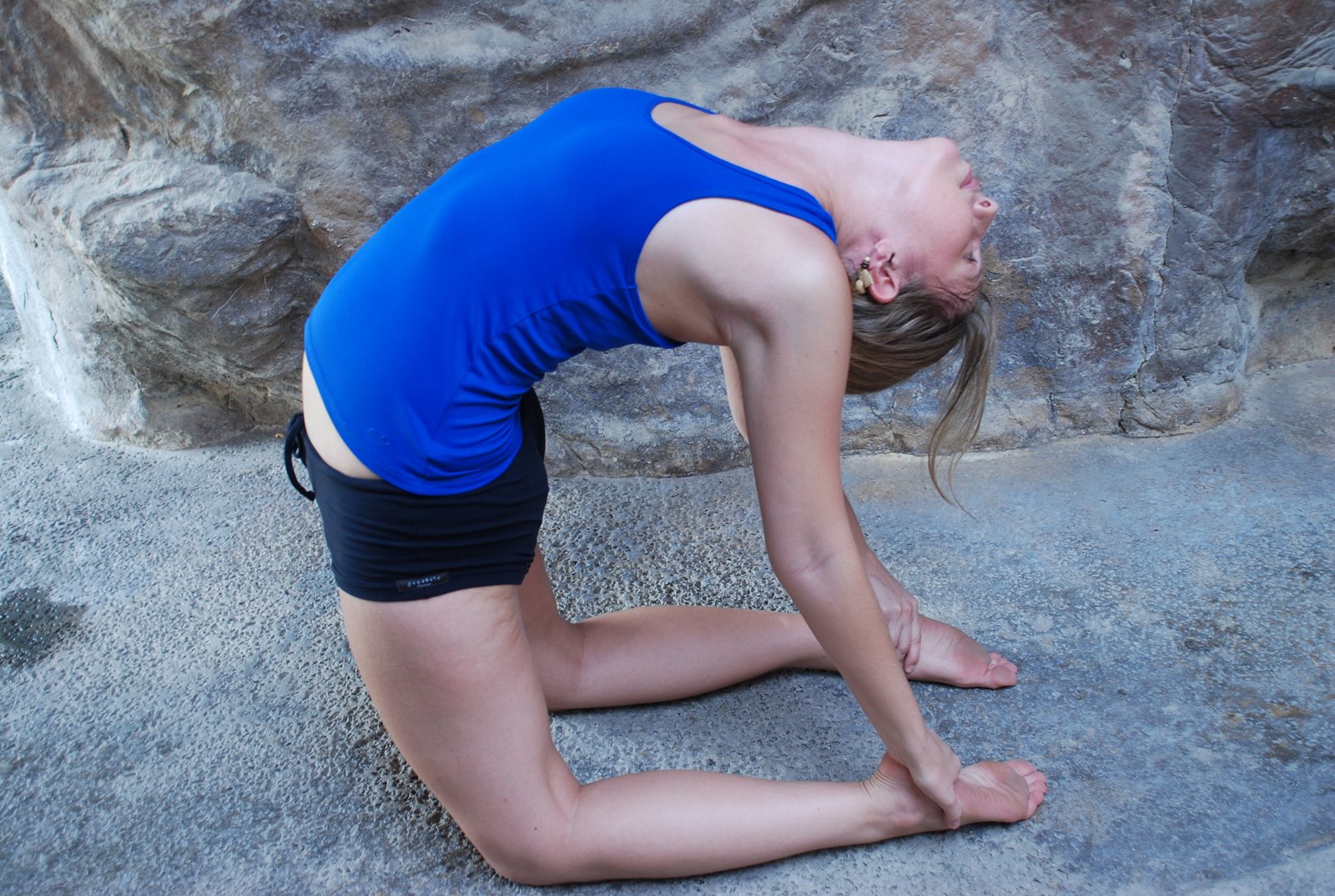By P.J. Stuart It’s way more powerful than a maximum compression of the spine. And that’s saying a lot.
It’s way more powerful than a maximum compression of the spine. And that’s saying a lot.
The deepest backbend of the Bikram series, Ustrasana is also a shattering release of the deepest parts of our psyche. It exposes us once again to our long-forgotten fears. It taps lightly on the front door of our repressed anger chamber. It relinquishes our unexpressed, perhaps self-denied joy and gratitude. It ushers in a powerful cocktail of grief, hope, delight, frustration. (And okay – sometimes, it just reminds us to lay off the nachos and beer.)
Knees and feet are six inches apart. Hands on the back of your hips, fingers pointing down, thumbs to the outside … you take a deep breath … Suddenly, your midsection is presented to the gods in its most vulnerable fashion, unleashed in full glory by the power of a 360-degree backbend, fueled by gravitation. In nature, you will rarely see an animal expose its most susceptible region like this. And yet here we are. Bam! Let it out, baby.
In my two years of practicing Bikram, I’ve been through the entire spectrum of emotions after Camel Pose. I’ve wanted to run out of the room and vomit (and once, I did). I’ve mourned a lost love. I’ve plotted an angsty e-mail to a boss, expressing my dissatisfaction over their management style. I’ve relived aspects my childhood, both positive and negative, gaining insight into my own complicated family dynamics. I’ve wrestled with acceptance over my current life circumstances.
The power of this release is nothing short of awesome. Each time, returning to my breath once again through all the inner turbulence, I emerge a lighter, cleaner, less encumbered version of myself. Perhaps the singularly most intense posture of the entire Bikram series, something magical and crazy happens to each of us during Ustrasana. It’s strangely healing, beyond the physical benefits to our spine and abdominal organs. BYPV teachers often say, “it’s normal to feel dizzy or nauseous.” But what causes this “emotional explosion” that comes with it?
Turns out, in psychosomatic science -- which studies the link between the body and the mind -- there is a known connection between the abdominal and pelvic regions to our deepest emotions. No wonder then, a sudden and dramatic activation of this area would cause such a fierce reaction.
According to reports from American Psychiatric Publishing, there are two reasons this connection exists. First, the organs in our abdominal and pelvic region are connected to some of the most emotionally engaging activities of our human nature: nutrition, excretion, sexuality and reproduction. These functions carry profound impact over our entire life experience. Much of our emotional well-being is related to these activities, and in turn, attached to the cellular memory of these organs.
Second, the organs in this region are powered by the autonomic nervous system. When we activate our spine in Camel, through maximum compression, we send huge amounts of nervous energy out into those organs. In other words: helllllo organs, hellllo emotions … let’s crank up the volume for a hot second, shall we?
So what kinds of experiences can you look forward to next time you’re in Camel? BYPV teacher Jacquie Malvin said she recently experienced a fit of uncontrollable laughter post-Camel, one she couldn’t explain (I’m still waiting for that to happen to me). No matter how uncomfortable, physically or emotionally, I can’t wait for my next dose of Ustrasana. Bring it on.





